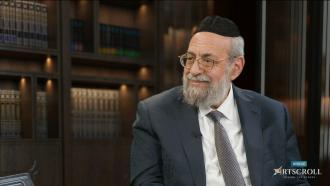The D.C. Council on Tuesday gave initial approval to legislation that would allow physicians to prescribe fatal drugs to terminally ill residents in the city, making the District the sixth jurisdiction nationwide to allow the practice.
It is the first predominantly black community to legalize so-called “death with dignity,” overcoming objections from some African American residents.
A spokesman for Mayor Muriel E. Bowser (D) declined to say whether the mayor would approve or veto the legislation, although he said Bowser “expects the bill to become law.” The council approved the bill by a vote of 11 to 2. Council members Brianne K. Nadeau (D-Ward 1) and Yvette M. Alexander (D-Ward 7) cast the dissenting votes.
The council still must hold a final vote on the bill, possibly as early as Nov. 15.
Tuesday’s action followed an emotional discussion in the D.C. Council chambers, which was packed with supporters wearing yellow “Compassion and Choices” shirts and opponents wearing red “NO D.C. Suicide” shirts.
Council member Kenyan R. McDuffie (D-Ward 5) lost his composure as he described the death of his father this year, pausing for 30 seconds in the middle of his testimony and excusing himself after the vote.
“My family had to watch him suffer, and I wouldn’t wish that on anyone else,” said McDuffie, tearful and his voice breaking. “But I’m not basing this vote today on my own story because there are thousands of other people throughout the district who have had the same experience. . . . This is by far my toughest vote in 4½ years in this body.”
Other council members described struggling to balance their religious beliefs with support for the legislation.
“While I have strong personal feelings with regards to the creation of the universe and humanity, I do not have the authority to impose my views on others,” said member Anita Bonds (D-At Large). “I will not take the liberty of even thinking for others on matters of life or death.”
Advocates say the measure would allow terminally ill patients to choose the timing and manner of their deaths and to avoid prolonged suffering.
But the practice is opposed by many who say it violates their religious beliefs. Advocates for the disabled say they fear people will be steered to premature death, and medical professionals say it violates the Hippocratic oath.
And it faces particular opposition from African Americans, who make up nearly half of the District’s population and are among the most likely to oppose such legislation. Some African Americans say they are unsettled by the practice because of historical abuse by the medical establishment and concerns that they may be steered to an early death.
Leona Redmond, a Northeast Washington resident who has organized African American seniors against the legislation, said she would take the fight against the bill to Congress, which can strike down local laws.
“We believe in life until natural death and that there is a racist component to it. It’s eugenics being dressed up to look like it’s the best thing since gravy,” Redmond said before joining a prayer circle outside the council chambers. “They have been ‘soft killing’ us for couple of decades now by not providing certain people in the community with what we need to live wholesome lives. They are doing everything to send blacks away.”
The “Death with Dignity Act” sponsored by council member Mary M. Cheh (D-Ward 3) is modeled after Oregon’s 1997 first-in-the-nation law.
The bill would allow terminally ill patients with less than six months to live to request fatal drugs from a physician after consulting a doctor over a period of two weeks, with two witnesses attesting that the decision is voluntary. Patients must ingest the medication themselves without the assistance of doctors or family members, and physicians can refer them to counseling if they think their judgment is impaired.
An analysis by the District’s chief financial officer estimates that fewer than 10 people a year would exercise the option provided by the proposed law.
Bowser pushed amendments to the legislation that would allow the D.C. Department of Health to offer training to doctors involved in these cases and prohibit patients from ending their lives in public places.
The legislation was supported by the national aid-in-dying advocacy group Compassion and Choices, and opposed by some doctors, religious groups including the D.C. Catholic Conference and advocates from the disability community.
To date, physician-assisted death has been authorized in Oregon, Washington, Montana and Vermont — states with mostly white populations. In June, a right-to-die law took effect in California, despite opposition from Latinos and Catholics.
The D.C. Council on Tuesday also gave final approval to anti-tobacco legislation that would increase the legal smoking age from 18 to 21, bar public use of e-cigarettes in places where smoking traditional cigarettes is prohibited and bar the use of all tobacco products, including chewing tobacco, at sporting arenas. It also sent the mayor a bill that would increase penalties for distracted driving.
















